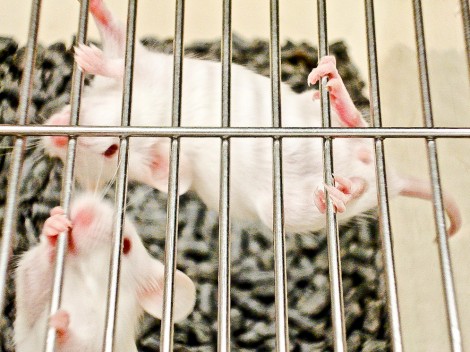Since Josef Penninger came to Toronto in 1990 as a postdoc, he has been elected one of the ten most cited scientists twice, and the list of prizes he received for his work on disease-related genetics goes on. He was a professor at the University of Toronto for many years before moving back to Vienna in 2003, but Penninger returned last week to give his traditional lecture on osteoimmunology.
When asked about his career, Penninger, who refers to himself as an “accidental scientist,” says, “I followed a girl when I went to Toronto. I just loved doing [science] … as a philosophical exercise to unlock the mysteries of the world.”
One of his team’s greatest recent achievements so far is a full mutant Drosophila library which allows scientists to knock down every gene of the fruit fly Drosophila, a frequently used model organism. “People thought I [was] crazy to support this, but this library has become one of the world’s most important resources for functional genetics,” says Penninger.
It followed the development of the first ever haploid mouse’s embryonic stem cells. For decades, yeast was the only eukaryotic organism that was known to partially live in a haploid form, a cell that has a single set of unpaired chromosomes. Not only does a rodent cell resemble a human cell far more than yeast, the rodent’s cell system can also be combined with stem cell technology.
“People were dreaming of doing this [for] decades and now we managed to do it — a true revolution. It also breaks the paradigm of biology that a mammalian cell with a single set of chromosomes is not viable,” he explains.
Not that all of this success came out of nowhere without obstacles. “I had a severe mouse phobia. As a young postdoc in Toronto, you could see me running — or better, sprinting — down corridors because some lab members had some fun and told me there was a mouse in the lab,” Penninger recalls.
He knew that when he wanted to pursue a career in molecular genetics and immunology, he would have to overcome this fear. He managed to do so, and explains how he subjected himself to what he calls “shock therapy.” He describes how he spent one year trying to stand in the same room with a mouse, then another until he could touch one and so on.
“I never felt that I made sacrifices because for some strange reason I found something I really liked to do. I am not advocating that people should work day and night. In many cases, this is even counterproductive. People should have real lives outside the lab and real weekends and real holidays.”
He stresses that some distance from the scientific world is important. “Let’s face it: we, as scientists, have ideas, test them with all we’ve got, and then some years, most of our ideas and projects go up in smoke. If it works, we send our work to scientific journals because we need to publish to get grants for a PhD — and we hope that a referee did not have a bad night’s sleep.”
A big part of his success surely is his great passion for what he is doing. He loves his profession regardless of the challenges science brings with it, he says. “Being a scientist is the coolest job in the world: [you meet] people and [travel] around in the world. We have a common scientific language irrespective of where we come from or how we look, and best of all, [you] can remain an eternal child in not believing the current truth and dreaming up possible future.”
Although he leads a world-class institute for biotechnology and genetics in Vienna now, he still collaborates with many friends he made in Canada. “I had a great time in Toronto. U of T combined brilliant minds in one location, people who for the most part wanted to work together. When I went back to Europe to build a new institute from scratch, I made sure to transplant the Canadian spirit and flat hierarchies.”
According to him, the main difference between science in Europe and science in North America is that “European institutes tend to be dominated by a ‘big’ professor,” while in North America, young scientists have more freedom and find more opportunities to realize their ideas. Still, Penninger does not forget to express how much he loves being back in Austria: the music, the coffee houses, and especially the cakes.


